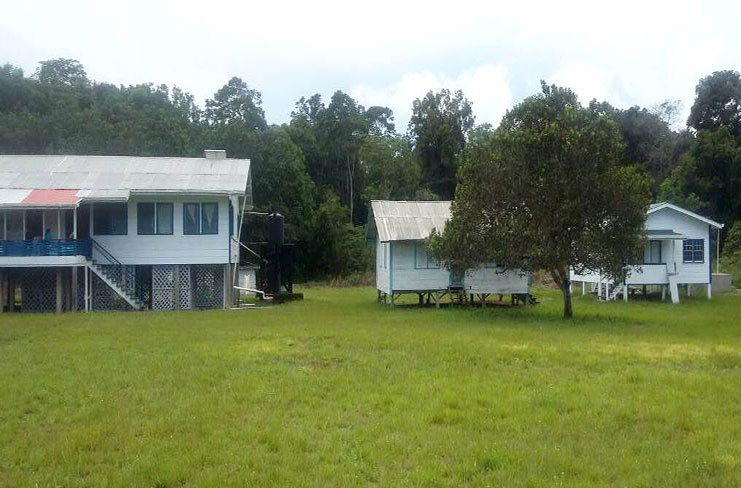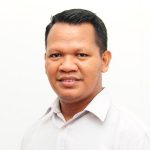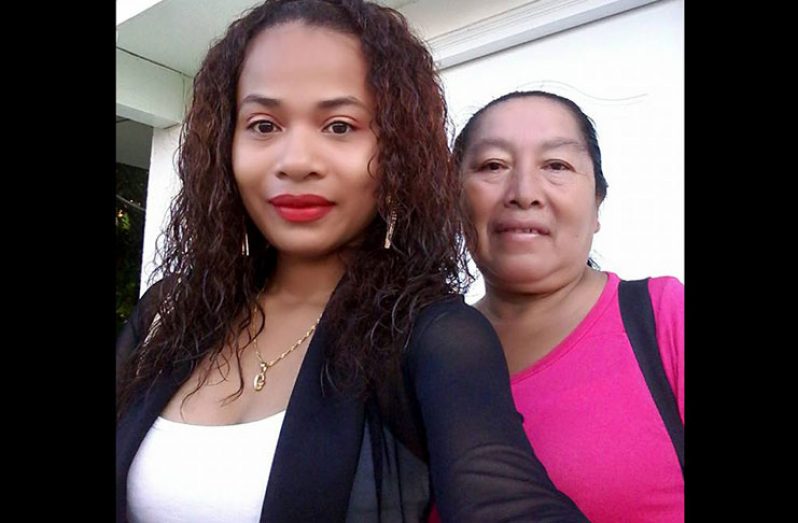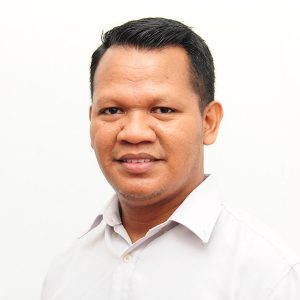-Jawalla’s first doctor lives her dream
HER dream was to one day serve her village as a medical practitioner .Today she has accomplished that feat and in the mind of Dr. Camille Hunter, providing medical care to the community is easier, given her ability to relate to fellow villagers in her native Akawaio language.
Dr. Hunter, a resident of the indigenous village of Jawalla, in Region Seven, (Cuyuni/Mazaruni), has overcome various challenges in order to achieve her current status. The Cuban -trained medical doctor was recently assigned to the health post at Jawalla by the authorities, and for her, returning to serve the people who saw her grow from an infant to the person she is today , is one of the more satisfying experiences she has encountered.
She started her schooling in Jawalla, a small, gold-rich, religious village nestled on the banks of the Upper Mazaruni River where the latter meets the Kukui River.

The second of four children, Dr. Hunter who is in her late 20s, recounted that her single-parent mother provided for her after she moved to the city as a child in order to enhance their education. She said that she was able to adjust to life in the city and found herself working to achieve good grades while being a student of the New Campbellville Secondary School on Sheriff Street. At the time, she lived with a guardian.
Back then, she noted that her aim was to pursue studies in several subjects at the Caribbean Secondary Education Certificate (CSEC) examinations, including the sciences. “But my mom was not financially able to cover those so I went on to study at GTI (Government Technical Institute),” she said.
Dr. Hunter soon pursued a diploma programme in the sciences at GTI and it was while she was awaiting her results at the end of the programme in 2008, that she received a call from the Ministry of Public Service. She said that she had applied to pursue studies in Cuba and in November that year while preparing to leave for the Spanish–speaking island, she received her results from GTI which were favourable.
Obstacles faced
But there were several hiccups, she noted. She was not the holder of a passport and she found herself looking for a guarantor as was required for her scholarship. “Luckily for me I had a lecturer from GTI who was willing to help me out, even though she was busy,” she noted. After overcoming the hurdles, the determined young lady left for Cuba where she spent six years pursuing medical studies on the island.
In 2014 she returned to Guyana and commenced internship at various medical institutions on the coastland. She spent most of the time at the West Demerara Regional Hospital where she was exposed to the realities of medical care.
In June this year, Dr. Hunter‘s “big day” finally arrived and she was on her way to the place of her birth. She is now the doctor-in-charge of the health post at Jawalla and in her capacity, she is able to provide medical care to persons in the area, as well as referrals to the Kamarang Hospital, the main medical institution in the Upper Mazaruni.
Dr. Hunter is the granddaughter of Rita Hunter, a well-known indigenous personality who was recently ordained in the Anglican Church as its first deaconess here. In fact, the elderly woman was the first community health worker at Jawalla and her granddaughter credits her grandmother as the person in whose footsteps she has been following.
She said that since her childhood days, she has admired her grandmother, noting that the woman’s thoughtfulness and considerate personality are qualities she tries to emulate. Dr. Hunter noted too that her mother also plays the role of her father. “My grandparents and my mom sacrificed so much for me,” she noted.
Cultural barriers
In 2014, the United Nations’Inter- Agency Support (IASG) in a thematic report entitled “Health of Indigenous Peoples”, noted that of all the barriers faced by indigenous peoples in the delivery of health care, it is the cultural barriers that “perhaps” present the most complicated challenge because there is little understanding of the social and cultural factors deriving from the knowledge, attitudes, and practices in health of the indigenous peoples.
The report stated that finding health staff who speak and understand indigenous languages is difficult, and poor communication between providers and clients, at all levels, compromises access to quality care. At Jawalla, Dr Hunter’s efforts are aimed at reversing this trend.
Dr. Hunter noted that there are several health issues which she has encountered and since she is no stranger to the village , she is familiar with those. She said that her work is made much easier since she speaks fluently in the Akawaio language. “Everybody at the village speaks Akawaio so I am able to converse easier with patients,” she said.
She noted that one of the more prevalent health matters at the village is that of teenage pregnancy. Dr. Hunter provides advice as part of her job to the young ladies at the village and she teaches them about the importance of contraceptives and family planning. She noted that the conversations can be touchy but nevertheless, she reaches out to everyone in the village. She posited that the issue may be tied to Jawalla’s main economic activity. “There are lots of miners in the area,” Dr. Hunter noted.
With a smile, she noted too that many have high expectations of her in the village. These include persons requiring treatment for ailments that may require surgical operations and which cannot be performed at the health post in the village. She noted that in various instances, patients would have to be referred to the Kamarang Hospital for treatment which cannot be administered at the health post at Jawalla.
During the interview, Dr. Hunter became emotional as she recounted the struggles she overcame along the way to becoming a medical practitioner. She is expected to serve Jawalla for a year and according to her, she is hoping that the time is extended since she plans to make a difference at the place she calls home.




.png)









